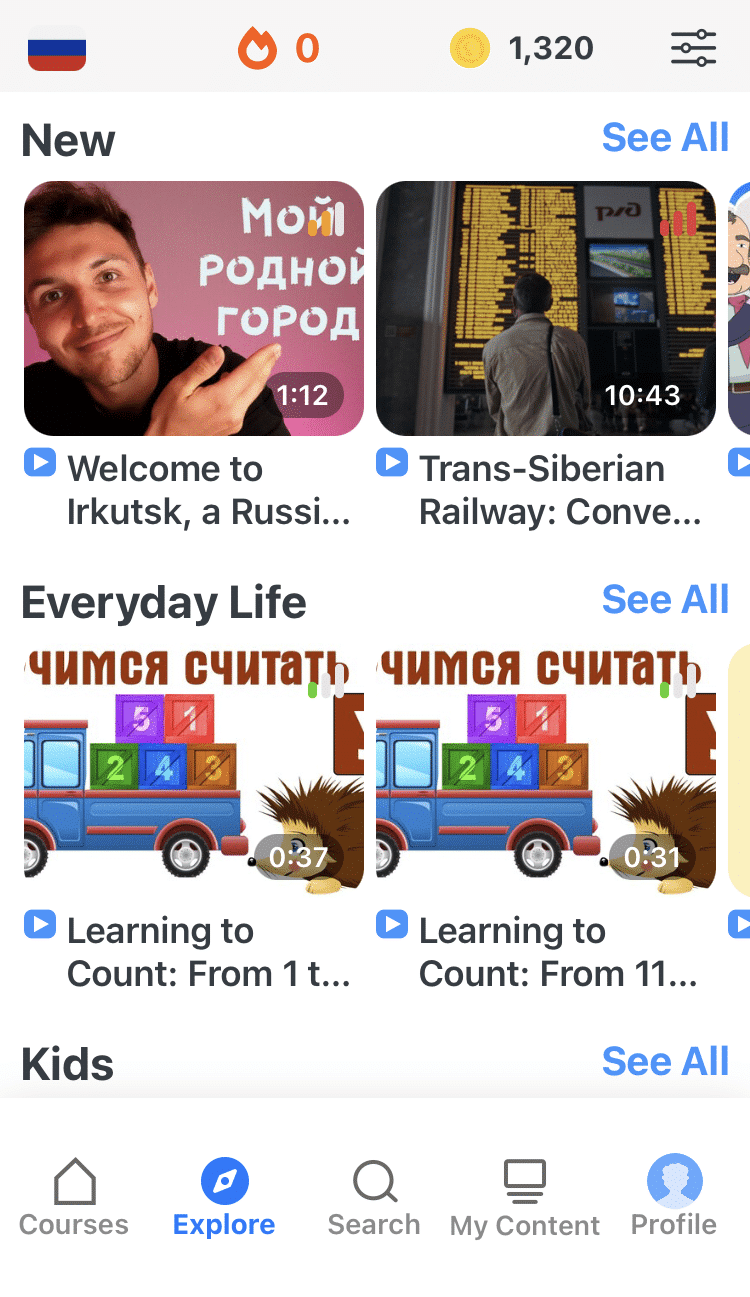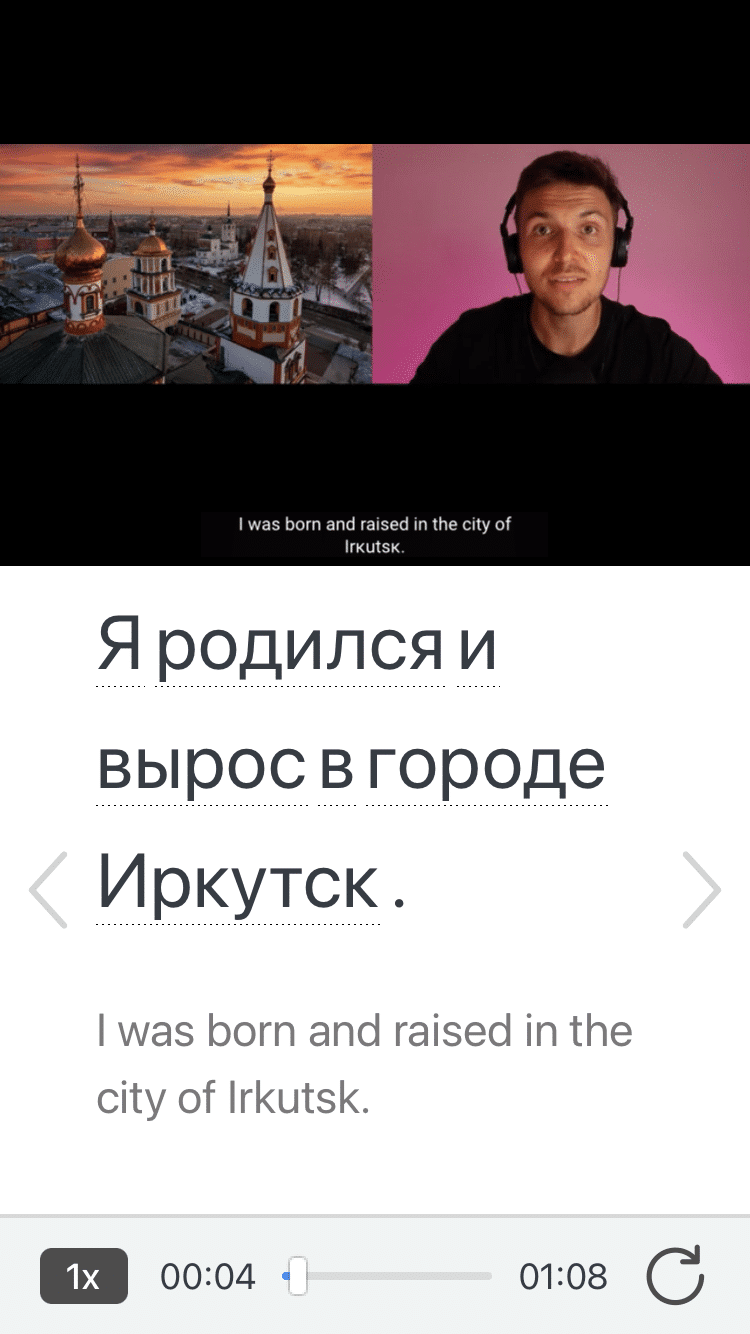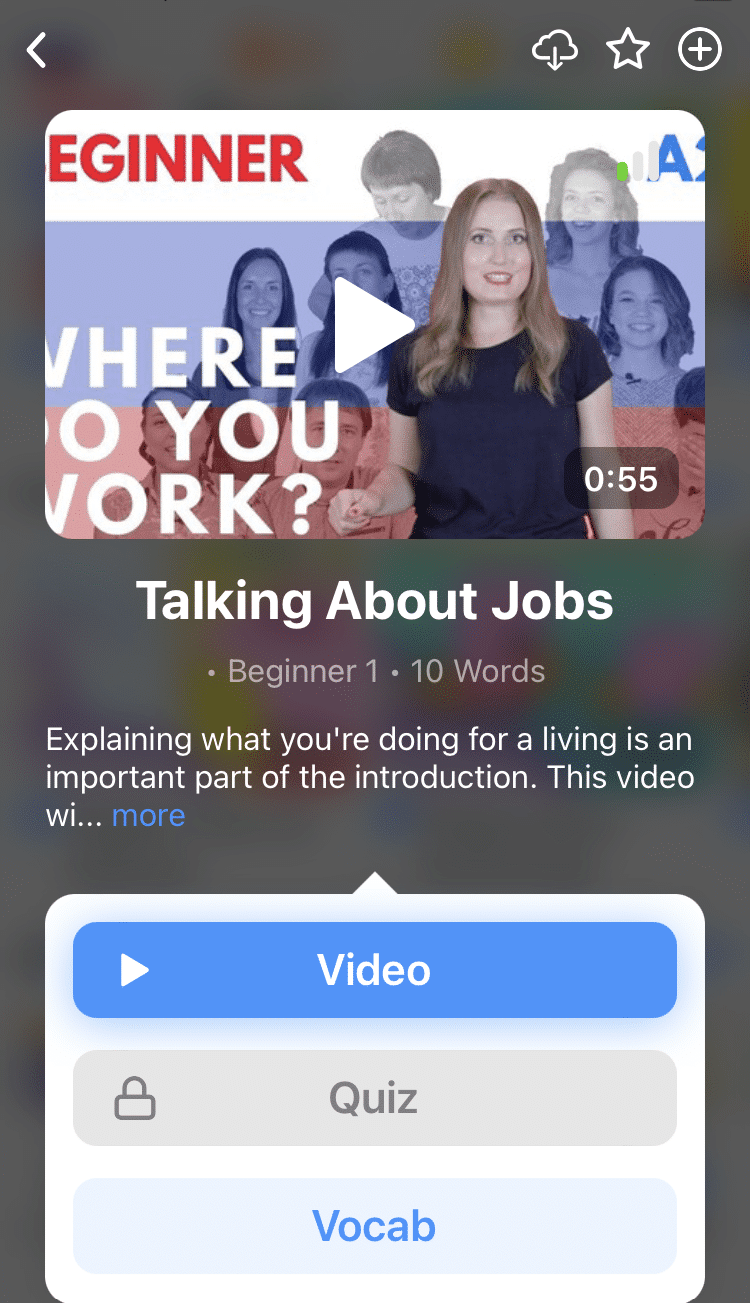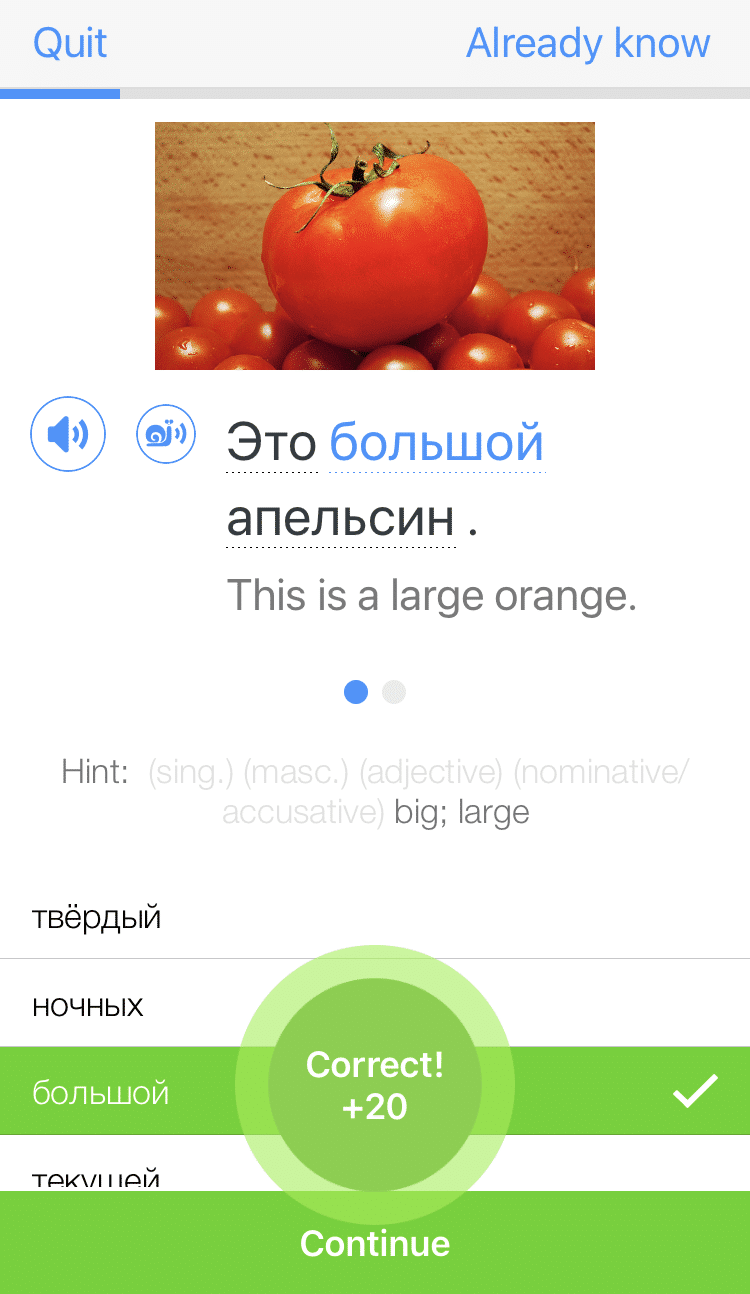
17 Ways to Say “Yes” in Russian
Quick, someone you like is asking in Russian if you want to hang out together.
You definitely want to respond in the affirmative, but you’re not sure how to say “yes” in Russian.
Do you go with the standard “Да” or is there a more suitable form of “yes” for the occasion?
Russian is a rich language with many wonderful ways to say what you really mean, so there absolutely are more than a few ways to respond in the affirmative here.
Read on to discover 17 ways to say “yes” in Russian, and even some ways to respond more… reluctantly.
Contents
- How to Use the Russian Да (Da) — Yes
- More Ways to Say “Yes” in Russian
- Конечно (Konechno) — Sure
- Разумеется (Razumeetsya) — Of course
- Согласен (Soglasen) / Согласна (Soglasna) — I agree (masculine/feminine)
- Точно (Tochno) — Exactly
- Верно (Verno) — True
- Так (Tak) — So
- Ясно (Yasno) — Got it
- Абсолютно (Absolyutno) — Absolutely
- С удовольствием (S udol’stviem) — With pleasure, gladly
- Хорошо (Horosho) — Okay, good
- Ладно (Ladno) — Okay, alright
- Ага (Aga) — Uh-huh
- О’кей (O’kei) — Okay
- Слушаю (Slushayu) — I’m listening, go ahead
- Не возражаю (Ne vozrazhayu) — I don’t object, that’s fine
- Добро (Dobro) — Agreed
- How to Say “Yes” with Reservations
- And One More Thing...
Download: This blog post is available as a convenient and portable PDF that you can take anywhere. Click here to get a copy. (Download)
How to Use the Russian Да (Da) — Yes
This is the most straightforward and commonly used word to affirm or agree. In fact, most people know it, even if they’re not learning Russian.
Just like “yes” in English, да confirms agreement with a statement or question. For example:
— Ты голоден? (Ty goloden?) — Are you hungry?
— Да, немного. (Da, nemnogo) — Yes, a little bit.
You can make the word more polite by adding “please” or “thank you”:
- Да, пожалуйста (Da, pozhalujsta) — Yes, please
- Да, спасибо (Da, spasibo) — Yes, thank you
You can use да in nearly any case where you want to say “yes.”
Beyond “Yes”
Да is the most common way to say “yes” in Russian, but it’s surprisingly versatile. There are actually a few other ways that you might hear the word being used.
Here’s a breakdown:
- Expression of surprise or doubt: Depending on intonation, “да?” can signify surprise or disbelief.
For example:
Ты действительно сделал это, да? (Ty deystvitel’no sdelal eto, da?) — Did you really do that, seriously? - Intensifying particle: The word да is sometimes used to emphasize an emotion or reaction. When used like this, the word is usually placed at the beginning of the sentence and conveys irritation, impatience or even surprise.
For example:
Да что с тобой такое? (Da chto s toboy takoye?) — What’s up with you?
There are a few other ways to use the word, such as for connecting words (“and”) and introducing contrast (“but”). However, those are outdated and you’re not likely to come across them unless you’re reading an older text.
More Ways to Say “Yes” in Russian
Beyond да, there are a number of other ways to say “yes” in Russian, with varying degrees of agreement. Read on to see how to use each word in examples, or look them up on the FluentU program for additional context.
FluentU takes authentic videos—like music videos, movie trailers, news and inspiring talks—and turns them into personalized language learning lessons. You can try FluentU for free for 2 weeks. Check out the website or download the iOS app or Android app. P.S. Click here to take advantage of our current sale! (Expires at the end of this month.)
Конечно (Konechno) — Sure
This conveys a strong “yes,” with a meaning close to “of course” in Russian. Use it when your answer to something is akin to “yes, obviously.”
For example:
— Ты можешь мне помочь? (Ty mozhesh’ mne pomoch’?) — Can you help me with this?
— Конечно. (Konechno.) — Sure.
Разумеется (Razumeetsya) — Of course
This word is similar in use and meaning to конечно, but it’s generally considered more formal. Like конечно, разумеется is an emphatic “yes.” You’d use it when there’s no doubt in your mind and you want to emphasize that fully.
For example:
— Этот новый ресторан имеет потрясающие отзывы. Стоит попробовать? (Etot novyy restoran imet potryasayushchie otzyvy. Stoit poprobovat’?) — This new restaurant has amazing reviews. Should we try it?
— Разумеется! Я давно хотела туда пойти. (Razumeetsya! Ya davno khotela tuda poyti.) — Of course! I’ve been wanting to go there for a long time.
Согласен (Soglasen) / Согласна (Soglasna) — I agree (masculine/feminine)
These expressions come from the verb “соглашаться,” which means “to agree.” Use them to show your agreement in the form of approval or consent.
You’ll need to make sure that the form you use corresponds to your gender. Besides the feminine and masculine forms above, the neuter singular form is согласно and the plural forms are согласны , regardless of gender.
For example:
— Думаю, пора начать новый проект. Ты согласен? (Dumayu, pora nachat’ novyy proekt. Ty soglasen?) — I think it’s time to start a new project. Do you agree?
— Да, согласен. (Da, soglasen.) — Yes, I agree.
Точно (Tochno) — Exactly
This word is used to confirm or emphasize something, conveying a strong sense of affirmation. It’s considered a bit on the informal side.
For example:
— Сегодня встречаемся в 6 вечера? (Segodnya vstrechaemsya v 6 vechera?) — Are we meeting at 6 PM today?
— Точно. (Tochno.) — Exactly.
Верно (Verno) — True
This is an option for agreement that’s more neutral in formality. If you’re not sure whether you can use точно, you can default to this, instead.
Want to convey an even stronger agreement? You can add “absolutely” for emphasis: Совершенно верно (Sovershenno верно) — Absolutely correct.
For example:
— Это был долгий и насыщенный день. (Eto byl dolgii i nasyschennyi den’.) — It was a long and eventful day.
— Верно, я устала, но это было интересно. (Verno, ya ustala, no eto bylo interesno.) — True, I’m tired, but it was interesting.
Так (Tak) — So
This word has a very similar meaning to Верно, but it’s a little more casual.
For example:
— Ты идешь на вечеринку сегодня? (Ty idyosh’ na vecherinku segodnya?) — Are you going to the party tonight?
— Так. (Tak.) — That’s so.
Ясно (Yasno) — Got it
In informal situations, this word can be used to convey agreement or understanding, similar to saying “got it” or “all clear” in English. It’s often used to express acknowledgment or agreement rather than being a direct translation of “yes.”
For example:
— Мы встречаемся в 5 вечера, хорошо? (My vstrechaemsya v 5 vechera, khorosho?) — We are meeting at 5 PM, okay?
— Ясно. (Yasno.) — Got it.
Абсолютно (Absolyutno) — Absolutely
This word can be used to express a strong affirmative agreement or acknowledgment. When used in response to a question or statement, it emphasizes wholehearted agreement, indicating that there’s no doubt or reservation in the affirmation.
This one’s a bit rare, and isn’t used as often as the other words in this list.
For example:
— Ты согласен пойти на концерт? (Ty soglasen poyti na kontsert?) — Are you willing to go to the concert?
— Абсолютно! (Absolyutno!) — Absolutely!
С удовольствием (S udol’stviem) — With pleasure, gladly
Use this expression to show willingness or eagerness to do something. It indicates that you’re happy to agree or comply with the proposed action and that you take pleasure in doing so.
For example:
— Приглашаю тебя на вечеринку. Придешь? (Priglashayu tebya na vecherinku. Pridyosh’?) — I invite you to the party. Will you come?
— С удовольствием. (S udovol’stviyem.) — With pleasure / I would be glad to.
Хорошо (Horosho) — Okay, good
While the previous few expressions were very happy to agree, this word is more neutral in its excitement. It’s more general, and is a standard way to say “yes” when you agree but not too emphatically.
For example:
— Давай завтра встретимся? (Davay zavtra vstretimsya?) — Let’s meet tomorrow?
— Хорошо. (Khorosho.) — Okay, good.
Ладно (Ladno) — Okay, alright
Ладно is often used in casual conversations to express agreement, approval or acceptance… but without much enthusiasm. Use it when your “yes” is more reluctant.
For example:
— Пойдем в кино вечером? (Poydem v kino vecherom?) — Shall we go to the movies in the evening?
— Ладно. (Ladno.) — Alright.
Ага (Aga) — Uh-huh
Ага is similar to saying “yeah” in English, and it conveys agreement in a more laid-back or conversational tone.
For example:
— Ты уже сделал домашнее задание? (Ty uzhe sdelal domashnee zadanie?) — Have you done your homework?
— Ага. (Aga.) — Uh-huh
О’кей (O’kei) — Okay
Sound familiar? This is a borrowed word from English that’s used in casual conversations, especially among the younger generations.
For example:
— Мы встречаемся в кафе в 7 вечера, о’кей? (My vstrechaemsya v kafe v 7 vechera, o’key?) — We’re meeting at the café at 7 PM, okay?
— О’кей. (O’key.) — Okay.
Слушаю (Slushayu) — I’m listening, go ahead
This phrase is used more often in phone conversations, but you can also use it to show that you’re ready to listen to a proposal or an idea.
For example:
— Привет, это Иван. Ты свободен сейчас? (Privet, eto Ivan. Ty svoboden seychas?) — Hello, it’s Ivan. Are you free right now?
— Да, слушаю. (Da, slushayu.) — Yes, I’m listening.
Не возражаю (Ne vozrazhayu) — I don’t object, that’s fine
This is an indirect way to say “yes” in Russian. It’s a good response when someone asks how you feel about something, and you want your agreement to show that you don’t feel strongly either way.
For example:
— Давай перенесем встречу на завтра. Ты не возражаешь? (Davay perenesem vstrechu na zavtra. Ty ne vozrazhaesh’?) — Let’s reschedule the meeting for tomorrow. Do you mind?
— Не возражаю. (Ne vozrazhayu.) — That’s fine.
Добро (Dobro) — Agreed
In some parts of the Russian-speaking world, you might hear this word used to indicate agreement. This originates from a more universal “дать добро” (give a green light).
For example:
— Можно мне взять твою книгу? (Mozhno mne vzyat’ tvoyu knigu?) — Can I borrow your book?
— Добро. (Dobro.) — Agreed / Go ahead.
How to Say “Yes” with Reservations
Sometimes, you need to say “yes”… but hesitantly. Use these expressions to say “yes” with a strong implication that you’re only agreeing with reservations:
- Да, но (Da, no) — Yes, but
- Может быть (Možet byt’) — Maybe
- Возможно (Vozmožno) — Possibly
- Не исключено (Ne isključeno) — Not excluded
- Полагаю (Polagaju) — I suppose
- Наверное (Navernoye) — Probably
- В принципе (V printsipe) — In principle
- Скорее да, чем нет (Skoree da, chem net) — More like yes than no
- Не факт, но возможно (Ne fakt, no vozmožno) — Not a fact, but possible
- Склонен согласиться (Sklonen soglasit’sja) — Inclined to agree
Great! You’re ready to reply “yes” in Russian for any occasion. Remember, the key is to tailor your choice to the situation and desired tone, letting these versatile Russian phrases dance with your intent!
If you love learning Russian and want to immerse yourself with authentic materials from Russia, then I should also tell you more about FluentU.
FluentU naturally and gradually eases you into learning the Russian language and culture. You'll learn real Russian as it's spoken by real Russian people!
FluentU has a very broad range of contemporary videos. Just a quick look will give you an idea of the variety of Russian-language content available on FluentU:
FluentU makes these native Russian videos approachable through interactive transcripts. Tap on any word to look it up instantly.
Access a complete interactive transcript of every video under the Dialogue tab. Easily review words and phrases with audio under Vocab.
All definitions have multiple examples, and they're written for Russian learners like you. Tap to add words you'd like to review to a vocab list.
And FluentU has a learn mode which turns every video into a language learning lesson. You can always swipe left or right to see more examples.
The best part? FluentU keeps track of your vocabulary, and gives you extra practice with difficult words. It'll even remind you when it’s time to review what you’ve learned. You'll have a 100% personalized experience.
Start using the FluentU website on your computer or tablet or, better yet, download the FluentU app from the iTunes or Google Play store. Click here to take advantage of our current sale! (Expires at the end of this month.)
And One More Thing...







